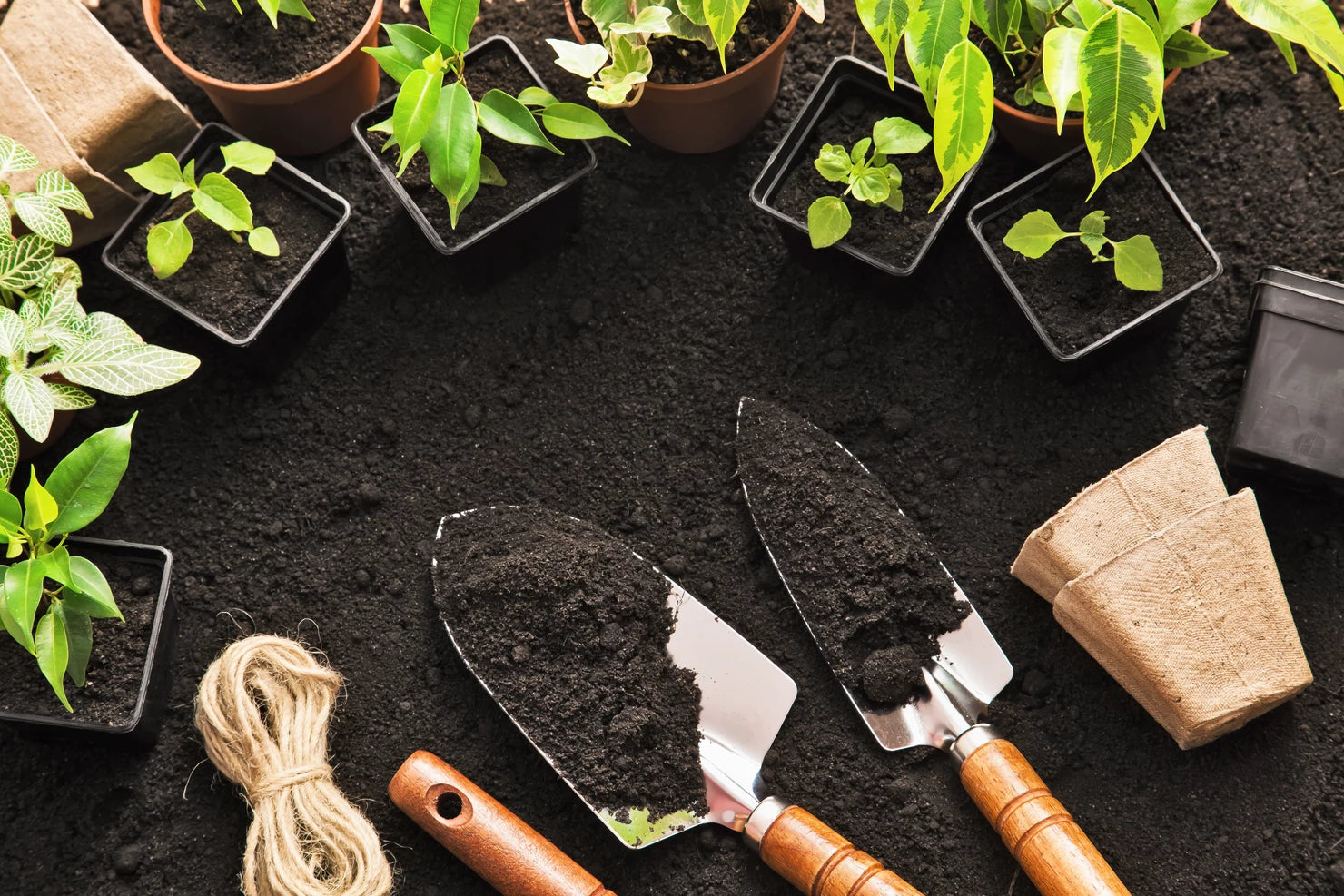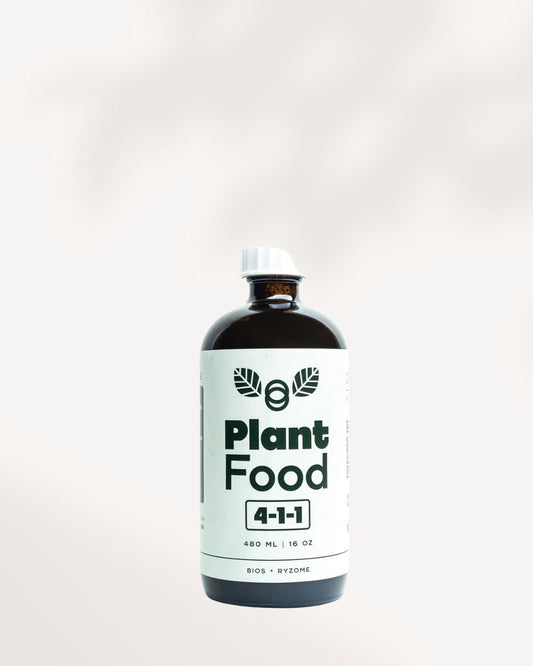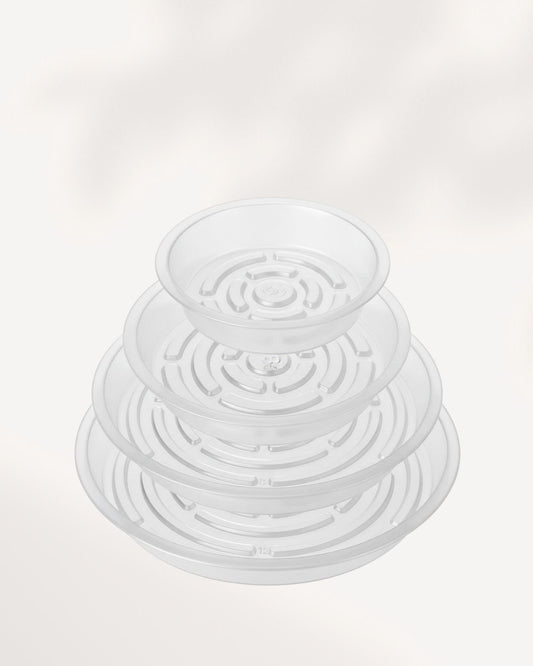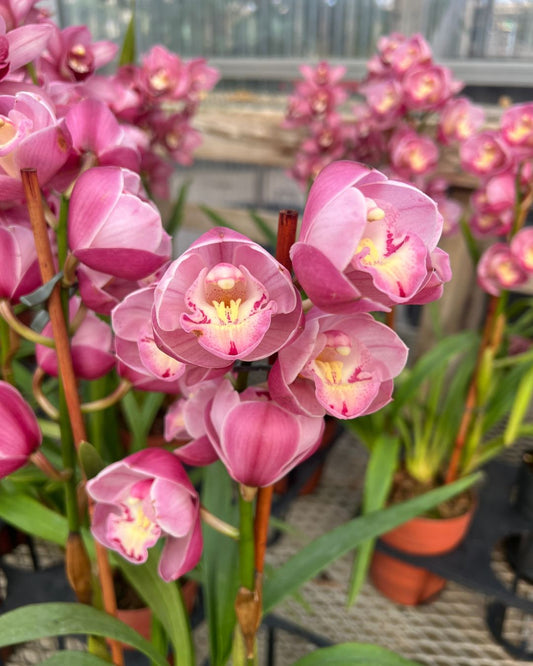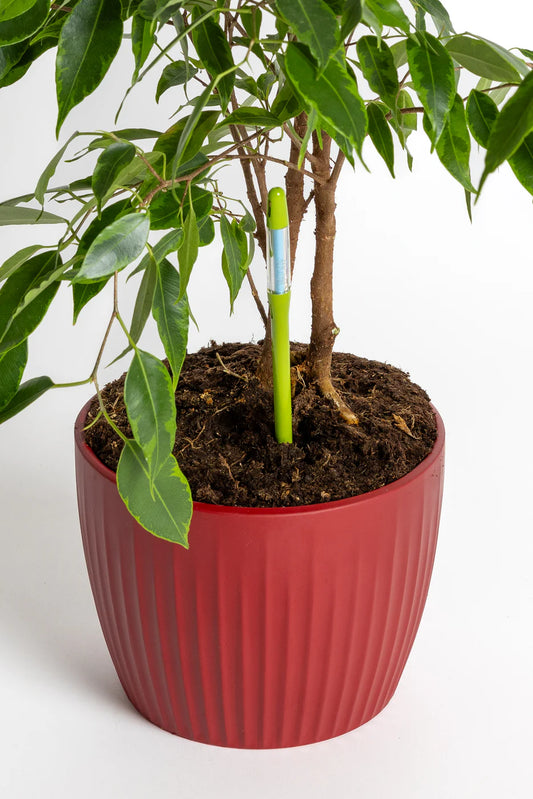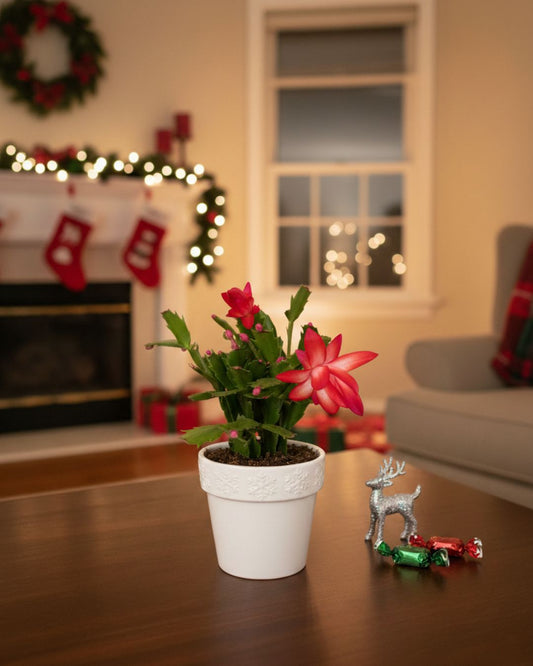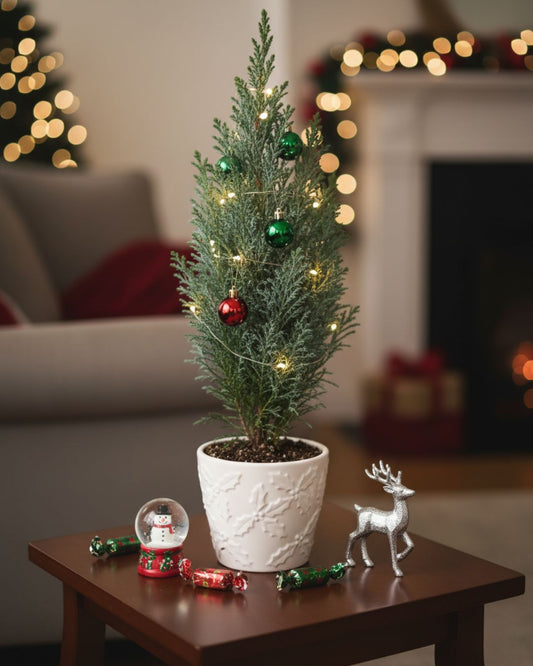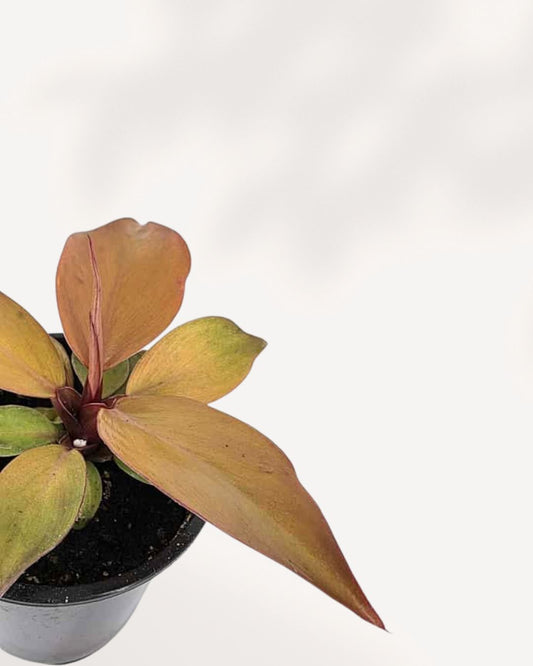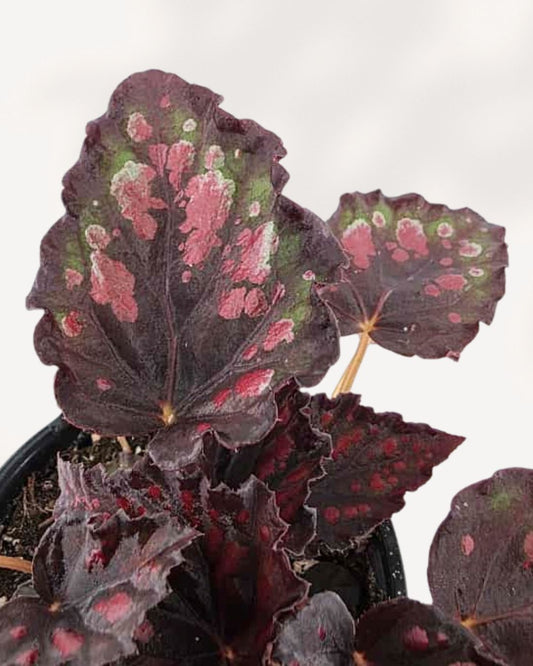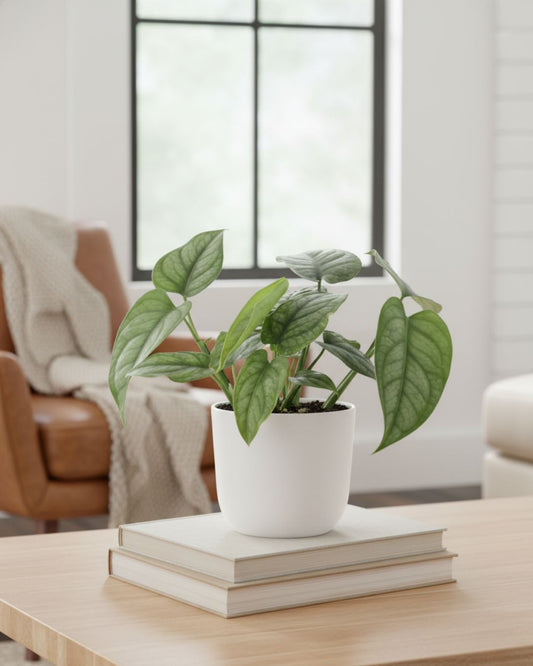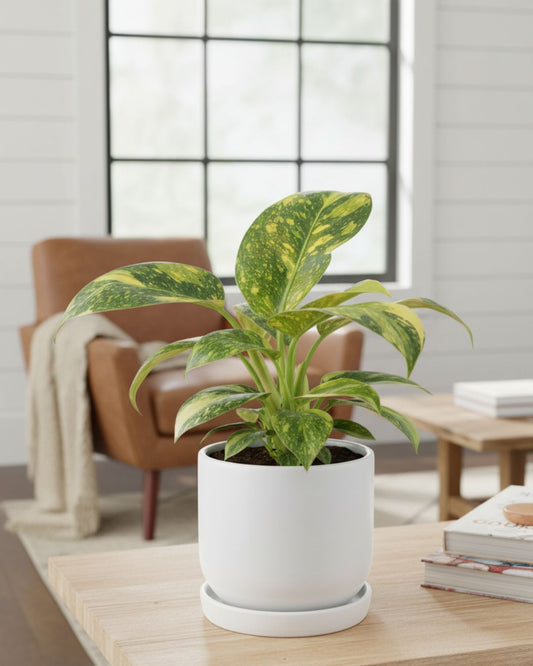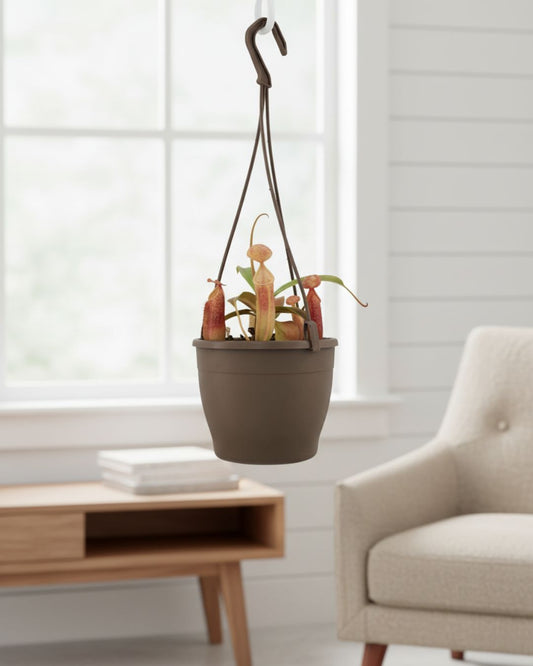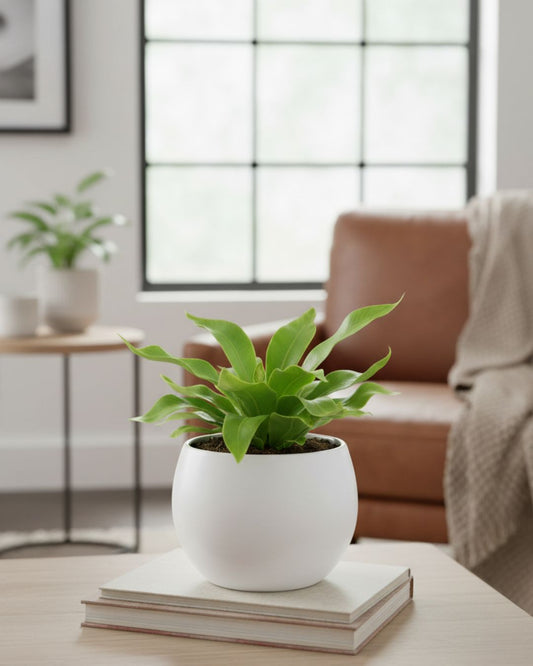How to care for Green Tea Plant
| Back to Library |
Quick Care Overview
| Care Aspect | Details |
|---|---|
| Light | Bright, indirect light or partial sun. Avoid harsh midday sun. Learn More |
| Water | Keep soil moist but not waterlogged. Reduce watering in winter. |
| Soil | Rich, well-draining acidic soil. Shop Potting Mix |
| Temperature | 60–85°F (16–29°C); protect from frost. |
| Toxicity | Non-toxic, safe for pets and humans. |
Green Tea Plant Care Guide | Growing, Watering, and Harvesting Tips
Learn how to grow and care for your Green Tea Plant (*Camellia sinensis*) with expert guidance on watering, light, soil, and harvesting. Ideal for tea lovers and gardeners alike!
Common Names
- Green Tea Plant
- Camellia sinensis
- Tea Shrub
Native Habitat
The Green Tea Plant is native to East Asia, particularly China and India. It thrives in humid, tropical, and subtropical climates with well-draining, acidic soil.

Uses and Popularity
The Green Tea Plant is valued for its leaves, which are harvested and processed into green, black, and oolong teas. It’s also admired as a beautiful ornamental shrub in gardens and containers.
Green Tea Plant Care Guide
Light Requirements
Green Tea Plants prefer bright, indirect sunlight or partial shade. Morning sun is ideal, but avoid harsh afternoon sunlight. Learn more about light requirements.
Watering Needs
Keep the soil consistently moist but not soggy. Water deeply when the top inch of soil feels dry. Reduce watering during winter.
Soil Preferences
Use well-draining, acidic soil (pH 5.5-6.5). Amend the soil with organic matter to enrich nutrients. Shop Potting Mix
Temperature & Humidity
Ideal temperatures are 60–85°F (16–29°C). Green Tea Plants thrive in humid conditions, so mist the leaves or use a humidifier in dry climates.
Fertilization
Feed monthly during the growing season with an acid-loving plant fertilizer. Explore Fertilizers
Pruning & Maintenance
Regularly prune to shape the plant and encourage bushy growth. Remove any dead or yellowing leaves.
Propagation Tips
Seed Propagation
Start Green Tea Plants from seeds by soaking them for 24 hours and planting in acidic soil.
Cuttings
Take semi-hardwood cuttings in late summer. Root in moist soil with indirect light.
Harvesting
Harvest young, tender leaves in spring. Pick the top two leaves and a bud for the best tea flavor. Dry and process according to tea type.
FAQs
How often should I water my Green Tea Plant?
Water when the top inch of soil feels dry, keeping it consistently moist.
Can I grow Green Tea indoors?
Yes! Green Tea Plants can grow indoors in bright, indirect light with high humidity.
When can I harvest tea leaves?
Harvest in spring once the plant matures (typically after 3 years of growth).
The Positive Impact of Plants
-
Plants and Healing
Working with plants soothes the mind. It feels calming and healing, offering a peaceful break from daily life.
-
Plants for Recovery
Being around plants can speed up healing from sickness, making you feel better quicker in a natural way.
-
Plants and Work
Plants in your space may make your work better and faster, enhancing focus and creativity during tasks.
LETTING CUSTOMERS SPEAK FOR US!
Shop by Feature
FAQs for Plant Delivery in Ontario & Quebec
What types of house plants do you offer for delivery.
We offer a wide variety of houseplants for delivery. Here are some of the popular options: Aglaonema, Alocasia, Calathea, Hoya, Monstera, Palm, Peperomia, Philodendron, Pothos, Sansevieria Snake, Syngonium, Tradescantia.
What is the lifetime support?
All plants purchased from our store or through our workshops come with lifetime support. This means that whenever you have questions or concerns about your plant, we're here to help. Whether you're unsure about your plant's health or need advice, we can assist in identifying problems, answering your questions, and potentially saving your plant. Feel free to reach out to us on Instagram @mygreenscapeto or via email at support@mygreenscape.ca.
Where do Mygreenscape plants come from?
Our plants embark on a journey from various greenhouses across Canada. We prioritize short delivery routes to ensure your plant arrives happy, healthy, and full of vitality.
Do I have to repot my plants once they arrive?
Absolutely not! When your plant arrives, give it time to settle into its new home. Place it in the desired spot, and let it acclimate for about two weeks.
Favorite in our plant shop
-
Liquid Plant Fertilizer
Regular price From $30Regular priceUnit price per -
Plant Saucer
Regular price From $2Regular priceUnit price per -
Cymbidium Orchid
Regular price $89Regular priceUnit price per -
SUStee Soil Moisture Indicators
Regular price From $12Regular priceUnit price per -
Christmas Cactus
Regular price $12Regular priceUnit price per -
Ellwoodii Cypress
Regular price $18Regular priceUnit price per -
Philodendron 'McColley's Finale'
Regular price $15Regular priceUnit price per -
Begonia Rex 'Harmony Stained Glass'
Regular price $15Regular priceUnit price per -
Monstera Siltepecana
Regular price $15Regular priceUnit price per -
Philodendron Green Congo Nuclear
Regular price $45Regular priceUnit price per -
Nepenthes Sanguinea Pitcher Plant
Regular price $35Regular priceUnit price per -
Cobra Fern
Regular price $18Regular priceUnit price per
MyGreenScape is your go-to online shop for indoor plants in cities Ontario or Quebec, including Toronto, Montreal, and many more. Our mission is to add joy to your home, one leaf at a time. Explore our range of beautiful, air-cleaning plants from the comfort of your home. You can find beautiful indoor plants, pots for plants, garden tools, and hanging basket plants all in one spot. Our mission is to add joy to your home, one leaf at a time.
Buying plants online with us means no more carrying heavy pots or figuring out how to get big plants home. We deliver straight from the gardener to you, with eco-friendly packaging, across Ontario and Quebec. Expect your new green friends within 2-7 days.
Why choose MyGreenScape? Here’s why:
- Lifetime Support: We’re here for you always. Get all the help you need for your plants to flourish.
- 30-Day Happy Plant Guarantee: Not happy with your plant? Tell us within 30 days, and we’ll fix it.
- Easy Delivery: Fast, direct to your doorstep in Ontario or Quebec.
Hear from a happy customer, Sarah T.: "Buying plants was never easier. Quick, simple, and with great support from MyGreenscape."
Ready for easy, stress-free plant shopping? Visit us now and make your home greener. Join MyGreenScape for a hassle-free way to bring nature inside.
